Iranian Hackers Gained Access To Election Results Website In 2020: US Military
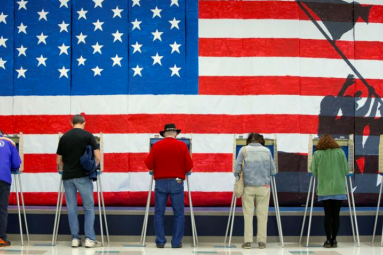
Iranian hackers gained access to a US government website set to report the 2020 elections results, according to US military officials.

Iranian hackers gained access to a US government website set to report the 2020 elections results, according to US military officials.
The revelation was made by Major General William Hartman, head of US Cyber Command’s Cyber National Mission Force, who spoke for the first time of the incident, one of multiple attacks from foreign hackers during the presidential elections.
Speaking at the RSA cybersecurity conference in San Francisco, Hartman spoke of public concern that hackers may have rendered the website for displaying results unreachable or posted fake results, shaking public confidence.
However, he claimed that the Iranian group, known as Pioneer Kitten, was removed from the network before any damage was done to affect voting.
Hartman said the Iranian group was one of multiple foreign groups which had tried to disrupt the 2020 elections. In the same year, Iranian hackers faked emails supposedly from the militant far-right group, The Proud Boys, in order to threaten voters.
Six Iranians and a company called Emennet Pasargad were sanctioned by the United States in 2021 for interfering with the 2020 presidential election following the admission of the Biden administration that both Iran and Russia had interfered with the 2020 US presidential elections.
At the time, Alireza Miryousfi, the spokesperson of Iran's mission to the United Nations in New York, claimed on his Twitter page that "unlike America, Iran does not interfere in the elections of other countries."
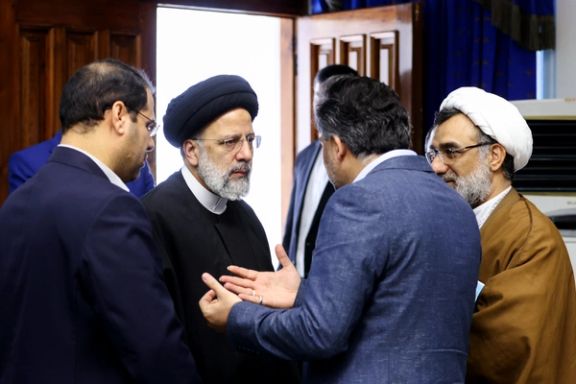
An Iranian lawmaker says the recent changes in the Raisi administration will not lead to any positive result as the president has not changed his approach.
Gholamreza Nouri Ghezeljeh added in an interview with Khabar Online in Tehran that although the highlight of the reshuffling was the removal of Agriculture Minister Javad Sadatinejad, several other ministers who needed to be replaced are still in the government because of problems in the dynamics between the parliament and the government.
Apart from changing some cabinet ministers, President Ebrahim Raisi also needs to remove some of the local officials and replace them with efficient executives, the lawmaker said. He charged that inefficiency is a shared characteristic by the parliament and the government – both dominated by hardliners loyal to Supreme Leader Ali Khamenei.
Ghezeljeh further added that the administration has a limited vision marked by factional interests, which prevents it from seeing the bigger picture and realizing the gravity of Iran's problems.
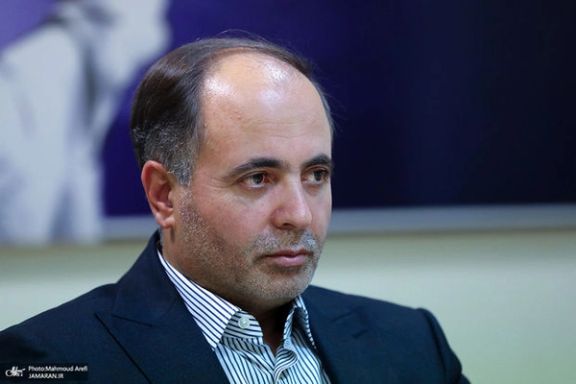
Ghezeljeh pointed out that there are many capable political figures within the conservative camp, but the government has limited its choices to a few individuals. He insisted that the country's executive management has many problems and change is badly needed in the cabinet.
Apart from the economic crisis that is the government's biggest problem, the Raisi administration is facing another major issue which is holding parliamentary elections next March while ensuring a good turnout. Media reports and opinions say voters are deeply disappointed with the regime’s engineered elections and might see no point in turning out to vote.
Although Iranian media have interpreted a statement by Supreme Leader Ali Khamenei about the need for cooperation among the heads of the three branches of the government as an order to stop the impeachment motion to replace Industry Minister Reza Fatemi Amin, some of the members of the parliament have told Rouydad24 website that the impeachment will go ahead as planned.
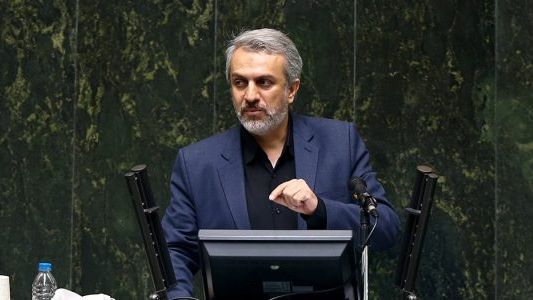
The impeachment was called for by at least 40 lawmakers. Although lawmaker Kamal Hosseinpour told reporters that the motion has been stopped, others including Lotfollah Siahkali insist that the motion will go ahead, while 15 of those who had signed the motion have taken back their support for the impeachment.
Meanwhile, another lawmaker, Ahmad Rasoulijead told Rouiydad24 that according to regulations, lawmakers cannot take back their signature once an impeachment motion is handed over to the presidium. In another development as the spokesman for the Ministry of Industry has charged that some lawmakers had personal demands from the minister, Rasoulinejad called on Fatemi Amin to name those lawmakers.
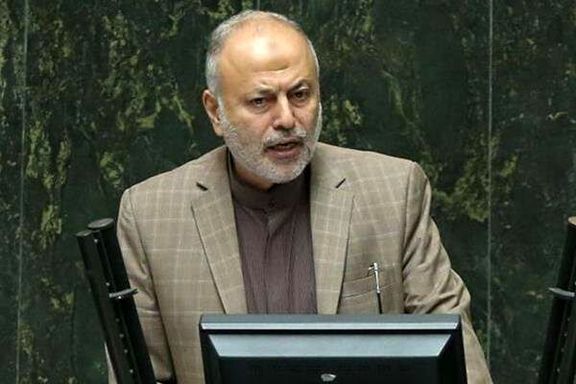
Criticism of the government among the members of the parliament is not simply about impeachments and the ministers of Industry and agriculture. Jalal Mahmoudzadeh has harshly criticized the performance of Foreign Minister Hossein Amir-Abdollahian and said with a minister like him, “we cannot maintain ties even with small countries” that have less than one million population. He also criticized the Raisi administration for dividing the nation as insiders and outsiders, with regime insiders winning the lion's share of all the privileges the government can offer.
Meanwhile, mysteriously a two-year old video of former president Mahmoud Ahmadinejad emerged last week in which he criticizes compulsory hijab. He also criticizes hardliners who charged unveiled women advocate nudity and called for respect for women's choice of what the wear.
However, many social media users have dismissed Ahmadinejad's comment as one of his tactics to grab attention, citing his policies during his presidency. Although Ahmadinejad had since 2005 spoken in support of young Iranians choice of lifestyle and dress code, he never stopped hardliners and vigilante groups from attacking women when he was president.
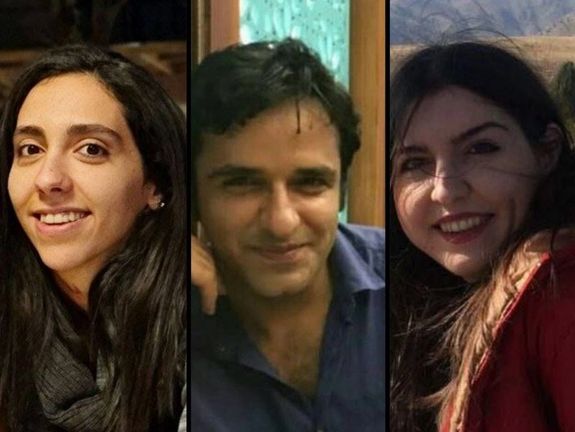
Three student activists in Iran have been summoned and indicted after protesting the serial poisoning of schoolgirls across the country.
Zia Nabavi, a former political prisoner, and student activist who was summoned to the Evin court together with two other activists, Fereshteh Tousi and Hasti Amiri, announced Monday that they have been accused of "propaganda against the state”.
The students from Tehran Allameh University held a gathering on March 7 to protest against the chemical attacks on students which began on November 30 in Qom.
Close to 300 schools and thousands of students have been targeted by chemical attacks with as yet, no clear answers from the government and no convictions made.
Nabavi is no stranger to the brutal regime’s crackdowns, having previously served nine years of a 10-year sentence on charges of "creating unease in the public mind" before being released in February 2018.
The attacks have mostly affected girls’ schools to quash the wave of anti-regime unrest which followed the death in custody of Mahsa Amini, with women leading the Woman, Life, Freedom revolutionary movement and rejecting the mandatory hijab.
Hundreds of girls have since been hospitalized with symptoms including respiratory distress, numbness in their limbs, heart palpitations, headaches, nausea, and vomiting.
Ordinary Iranians have been suspicious of the involvement of the regime itself, or religious extremists protected by the regime, calling the attacks “state terrorism,” although the regime has denied responsibility and even staged arrests of suspects after widespread protests.
Popular belief is that such large-scale and coordinated attacks cannot happen without the green light of regime authorities.

As the government in Iran fails to stop recurring chemical attacks on girls’ schools, parents are moving to take protection into their own hands.
Following increasing attacks in the past two weeks, photos emerged on social media of parents standing guard outside their daughters’ schools.
Moreover, the Coordination Council of Iranian Teachers' Trade Associations issued a statement on Monday, stressing the necessity of forming grassroot groups to protect students. The council also called for the formation of a "human chain around schools.”
Earlier on Monday, several schools in the Kurdish-majority city of Sanandaj were attacked by the mysterious gas for the second time in the past two weeks.
Also on Monday, schools were attacked in the cities of Hamedan, Mehrshahr and Karaj, among others. An unknown number of girls were taken to hospital following these attacks.
The council also said that two teachers were also hospitalized in the intensive care unit after one of the attacks in Karaj, near the capital Tehran.
In the statement, the Council pointed out that the poisonings have been happening for over six months and despite haphazard denunciations authorities have taken no action to stop them.
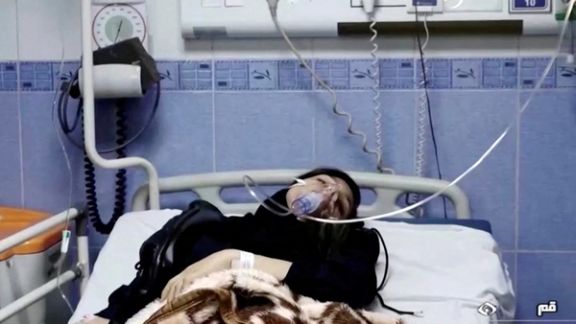
"While we are witnessing the continuation of these crimes, the suspicion of the government's support and orchestration of the attacks have become evident,” read the statement.
“The country's police force is unable to ensure the safety of the children, but at the same time, it has devoted its efforts to threatening freedom-loving women, who resist pressure so as to have a choice on choosing their clothing," the council added.
Urging students, their families, and teachers to join hands and set up groups to protect the schoolgirls, the council said, If the perpetrators of these catastrophic crimes are not identified, tried and punished, the teachers will inevitably hold classes in the street to save the lives of the students and will ask the popular groups to protect them with a human chain."
In the past few days, families of students staged several rounds of protest rallies urging officials to hold classes virtually rather than at schools to protect children from further attacks that began in November.
Critics of the regime say the attacks are part of a crackdown on protests, a claim denied by officials who have claimed the symptoms are the result of mass hysteria. Every now and then in the past six months, state media reported the arrest of perpetrators but never has the regime announced the identities of the detainees, or provided information about their motives, date of trial and the investigation.
The only people whose arrests became certain were the people who released videos of the aftermath of the attacks. The Ministry of Islamic Guidance has sent a notice to the local media to censor the news related to the attacks.
Close to 300 schools were targeted in the past Iranian year ending on March 20 without any apparent serious effort by the government to identify and pursue the perpetrators, nor to explain to terrified parents and students what was happening.
Thousands of students have been affected, mostly girls, with hundreds hospitalized with symptoms including respiratory distress, numbness in their limbs, heart palpitations, headaches, nausea, and vomiting.

Families of political prisoners executed in Iran’s in 1988 are meeting Ohio state legislators to push for the sacking of a college professor accused of being involved in the killings.
According to a statement released by relatives of the victims, they will meet with 10 state legislators to ask them to withhold state and federal funding to Oberlin College until Mohammad Jafar Mahallati, a former Iranian UN envoy who covered up the mass killings, is fired.
"On April 28 we will hold a protest at Oberlin College, and then we will participate in the Oberlin city rally to hail the courage of the Iranian people in standing up against the clerical regime," read the statement.
Mahallati, currently a professor of religion at Oberlin College, is accused of playing a role as an accomplice in the 1988 prison massacre.
The executions were carried out based on a fatwa by Iran's then-supreme leader, Ruhollah Khomeini, against the MEK which carried out a wave of bombings in Iran and struck an alliance with Saddam Hussein during the 1980-88 war.
The exact number of prisoners executed during the purge of prisoners is not known but according to Amnesty International, the Iranian authorities "forcibly disappeared" and "extrajudicially executed" around 5,000 between July and September 1988.
Mahallati maintains that he was unaware of the executions despite Amnesty International’s numerous urgent notices to Iran calling for an end to the killings which were widely reported by the media.

Britain has announced further sanctions on Islamic Republic officials, including commanders of the IRGC,for their role in the regime’s bloodshed at home and abroad.
Britain has announced further sanctions on Islamic Republic officials, including commanders of the IRGC, for their role in the regime’s bloodshed at home and abroad.
Announcing the sanctions on Monday in coordination with the United States and the European Union, the British government said those sanctioned included four regional commanders of the Revolutionary Guards.
“The Iranian regime is responsible for the brutal repression of the Iranian people and for exporting bloodshed around the world. That’s why we have more than 300 sanctions in place on Iran, including on the IRGC in its entirety,” Foreign Secretary James Cleverly said in a statement.
Despite his claim about sanctions on the entire IRGC, the British government has so far failed to proscribe the outfit as a terrorist organization despite several rounds of rallies by the Iranian diaspora as well as calls by activists.
Dual British-Iranian citizen Vahid Beheshti is on his 61st day of hunger strike outside the UK Foreign Office, calling on the UK government to designate the IRGC, a terror group responsible for the deaths of hundreds of Iranian citizens since September 2022, when Iranians revolted against the regime after the death in custody of 22-year-old Mahsa Amini. His campaign has proven so successful that his name has been frequently mentioned during the sessions of the UK House of Commons, but London has not officially blacklisted the IRGC.
“The UK and our international partners are again making clear today that we will not overlook the regime’s brutal oppression. We will continue to take a range of actions to hold the regime to account for its actions,” Cleverly added.
The UK’s current list of 78 proscribed terrorist organizations includes Hamas, Hezbollah, and the Kurdistan Workers Party (PKK) but not the IRGC. The Revolutionary Guard is the Islamic Republic’s leading military, intelligence and internal security juggernaut, responsible for cracking down on dissent inside Iran and managing the proxy militias throughout the region including the Houthis in Yemen which have caused devastation to the country.
Several countries including the US, UK and EU have been cautious to designate the IRGC for fear it will further alienate the regime and in turn, limit negotiating capacity regarding its nuclear program.
In December, members of the UK House of Commons unanimously voted for a motion that urges the government to proscribe the IRGC, but it has split the House.

According to the British government, the US and EU are also set to announce further sanctions on Iranian regime officials responsible for human rights violations, but two of the newly sanctioned IRGC commanders are already blacklistedby the US and the EU as well as Canada and Australia, and the other two already sanctioned by the EU.
“The latest UK sanctions are against four IRGC Commanders, under whose leadership IRGC forces have opened fire on unarmed protestors resulting in numerous deaths, including of children, and have arbitrarily detained and tortured protestors,” added the Monday statement.

Mohammad Nazar Azimi is the Commander of Najaf Ashraf West Headquarters, and according to the British government responsible for the violent repression of protests in the Kurdish-majority Kermanshah Province, with IRGC forces using machine guns against unarmed protestors resulting in multiple deaths.
The other blacklisted IRGC commander is Habib Shahsavari, who leads the Shohada ground troops of the West Azarbaijan province, andis responsible for repression of protestors in Mahabad and Piranshahr, where the regime’s crackdown resulted in multiple deaths.

Mohsen Karimi – the IRGC commander of Markazi province – and Ahmad Kadem (Khadem) – the commander of the Operational Base Karbala, which commands IRGC troops in the provinces of Khuzestan, Lorestan and Kohgiluyeh and Boyer-Ahmad, are the other two guards sanctioned for their role in the repression of protests.
Karimi was announced as responsible for the violent repression of protests, including 19-year-old protestor Mehrshad Shahidi who was reportedly beaten to death in an IRGC detention center. And Khadem was responsible for the repression of protests in the town of Izeh, in Khuzestan Province, during which 10-year old Kian Pirfalak was shot and killed.
